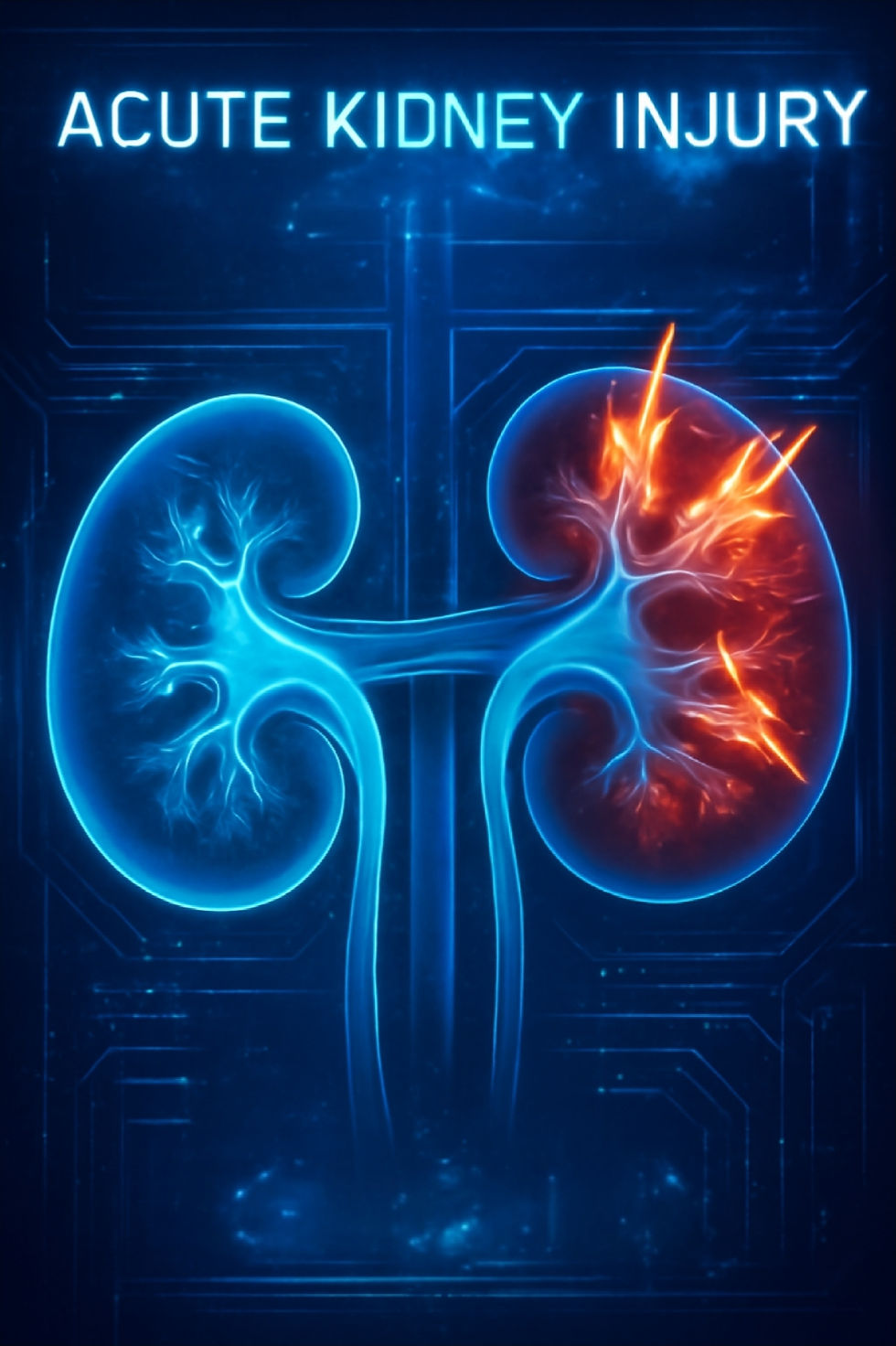Acute Kidney Injury
- Dr. Amol Kulkarni

- Aug 9, 2025
- 1 min read
Acute kidney injury (AKI) is a sudden loss of your kidneys’ ability to filter waste and excess fluids from your blood. This can happen quickly—within hours or days—and can cause dangerous levels of waste and fluid to build up in your body.
Causes: AKI often occurs because of reduced blood flow to the kidneys (as with dehydration, blood loss, or heart failure), direct injury to the kidneys from medications or infections, or blockages that prevent urine from leaving your body (for example, kidney stones or an enlarged prostate).
Symptoms: Some people may notice little or no symptoms, especially early on. As the condition progresses, you may have decreased urine output, swelling in your legs or ankles, fatigue, confusion, shortness of breath, or nausea.
Diagnosis: Doctors diagnose AKI with blood and urine tests that measure how well your kidneys are working. They may also use imaging tests like ultrasounds to look for blockages or other problems.
Treatment options: Treating AKI depends on the underlying cause. Often, patients need IV fluids to correct dehydration, medicines to treat infections or manage symptoms, and sometimes changes in medications that may be harming the kidneys. In serious cases, temporary dialysis may be needed to do the work of your kidneys while they heal. Early diagnosis and treatment are crucial for the best outcome.




Comments